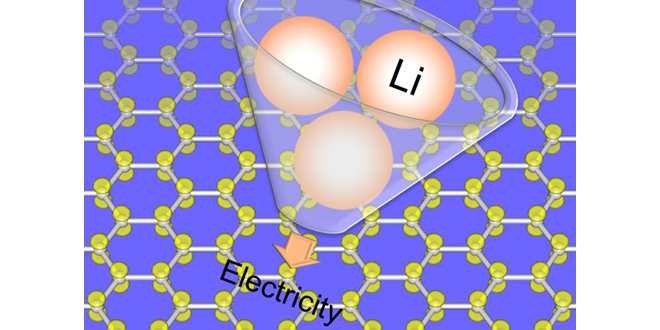Researchers at Rice University and Lawrence Livermore National Laboratory have developed a new theoretical model that predicts how carbon components will perform as electrodes. The research, published in the journal Physical Review Letters, examined the electronic characteristics of anode materials, including quantum capacitance (the ability of a material to absorb charge) and absolute Fermi level (how many lithium ions can bond to the electrodes).
“This work emphasizes the role of quantum capacitance,” said Boris Yakobson, one of the study’s leaders. “Capacitance in a battery is usually defined by the configuration of your electrodes; people think about this as the distance between the plates. But if the plates become very close and the electrodes and electrolyte are tight, then quantum capacitance becomes the limiting parameter.”
“The Fermi level of the electrode material is also important,” said Yuanyue Liu, the paper’s lead author. “The lower it is, the stronger lithium will bind.”
Liu and co-author Brandon Wood were looking for a “descriptor,” a characteristic that would capture the essential physics of interactions between lithium and a variety of carbon materials. “That descriptor turned out to be the ‘states-filling work’ – the work required to fill previously unoccupied electronic states within the electrode,” Liu said.
Based on the descriptor, the researchers evaluated various carbon materials, and developed a set of guidelines for carbon anodes. “These allow us to quickly evaluate material performance without doing electrochemical tests or expensive computations,” Liu said.
“The fact that our descriptor predicts the performance of such a wide variety of materials is surprising,” Wood said. “It means the underlying physics is really very similar, even if the structure, morphology, or chemistry differs from one candidate to the next. It’s really a very simple and elegant finding that could accelerate design and discovery.”
Source: Rice University via Green Car Congress
Image: Yuanyue Liu/Rice University



















































